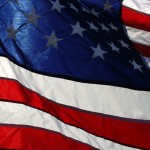
On Friday, our week in review linked to Patricia Cohen’s article about political liberalism in the academy, “Professor is a Label That Leans to the Left.” The article was based on the work of sociologists Neil Gross (U. British Colombia) and Ethan Fosse (a PhD candidate at Harvard, where Gross worked until recently), who propose that academic liberalism is due to typecasting, similar to how nursing is considered a “woman’s job” by most Americans.
The academic profession “has acquired such a strong reputation for liberalism and secularism that over the last 35 years few politically or religiously conservative students, but many liberal and secular ones, have formed the aspiration to become professors,” they write in the paper, “Why Are Professors Liberal?” (PDF) That is especially true of their own field, sociology, which has become associated with “the study of race, class and gender inequality —a set of concerns especially important to liberals.”
Photo Credit: bbaltimore via Flickr
Gross, along with Solon Simmons of George Mason, has written a number of articles that have been quite valuable to my personal understanding of the academy, “The Social and Political Views of Professors” and “How Religious Are America’s College and University Professors?” Both papers are worth reading. I’ve distilled some of the more interesting numbers from the 2nd paper, along with some other sources, for a description of the climate for Christians on campus that I often share with churches.
The excellent website GetReligion.org, which focuses on the mainstream media’s converage of religion, asked if there were any “religious ghosts” in the article —that’s “GR-speak” for religious angles to a story that a journalist overlooked or ignored. Specifically, what role does religion play in the politics of university professors? Steve Rabey of GetReligion.org writes,
I wish Cohen had devoted more space to discussing the religious elements of academia’s liberal tilt. Unfortunately, she only briefly mentions “secularism” and academia’s preference for professors who embrace “a non-conservative religious theology.”
Personally, I think there is a religious component to the political liberalism of the academy, but it’s a complex relationship. Here’s what I wrote in my comment on GetReligion.org:
There’s really a need for two distinct articles, if not more. There’s the issue of conservative politics and the academy, and then there’s the issue of “conservative” religion and the academy. Many “conservative Christians” that I know in the academy, who hold to “conservative” views of Scripture, salvation, historicity of Jesus, etc., have overall political views that would be considered liberal by most Americans. In our culture at large, conservative religion and conservative politics are closely intertwined, but I think they are much further apart within the academy. (The most politically diverse group I know is the community of evangelical campus ministers, grad students, and faculty that I work alongside.) I’d love to see this distinction between religion and politics within the secular academy explored a bit more.
But enough of my thoughts. What do you think?
- In the university, what’s the relationship between conservative politics and evangelical Christianity?
- Are professors politically liberal because they are theologically liberal, vice versa, or doe one have nothing to do with the other?
- How does the close association between evangelical Christianity and conservative politics in American culture affect the perception of Christianity within the academy?
The former Associate Director for the Emerging Scholars Network, Micheal lives in Cincinnati with his wife and three children and works as a web manager for a national storage and organization company. He writes about work, vocation, and finding meaning in what you do at No Small Actors.

Leave a Reply